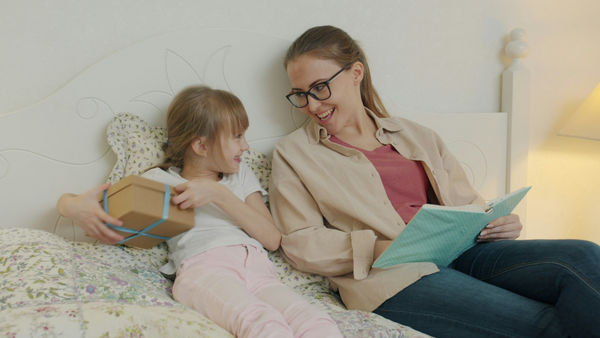The back to school season can be an exciting yet busy time for parents and kids who are preparing to get back into their school routine. Some kids can find this transition back to a school routine challenging, especially if they are entering a new grade or starting at a new school. These challenges can be amplified for neurodiverse kids, who sometimes require more support than their neurotypical peers.
We’re going to go through ways you can make sure your neurodiverse kids are prepared and confident for this back to school season. Our back to school advice is especially relevant for children with autism or ADHD, but also applies to any parent of a neurodiverse child.
Back to School Preparation for Autistic or Neurodiverse Kids
Preparation is key in ensuring a seamless transition into going back to school. Here’s our back to school advice for parents of autistic children, children with ADHD or otherwise neurodivergent children:
Have an Unwind Period
The summer and winter break periods are long, and are often filled with exciting activities. Transitioning away from a jam-packed, fun schedule back into a school routine can be difficult for some children. Towards the end of your school break, consider slowing down or having a more structured routine for your autistic or neurodiverse child, so that the transition to school is less jarring.
This could be potentially more useful for younger children, but also works for any child who struggles with change. This ‘unwind period’ does not necessarily need to replicate a typical school day, but adding in some structure can prepare your child for a typical day at school.
Check in With the School
If you are starting your child at a new school, or you want to know more about the support your child will be getting, consider contacting the school to discuss. Not only is it a way for you to get reassurance that your autistic or neurodiverse child will be well supported, it is also an opportunity for you to mention any important information to the school. If your child receives occupational or speech therapy during school, you could also request to contact or meet with them ahead of the start of the semester, so that everyone starts the school year on the same page.
Maintain A Schooltime Routine
Children work well with routines, and setting up a simple and effective morning routine can be especially useful for autistic children or children with ADHD. Using a visual aid is not only proven to be effective, but also can provide your child with a tangible way to maintain a morning routine. You can create your own morning routine, and test it out during the unwind period to see if your child responds well to it. We’ve made an example morning routine suitable for autistic or other neurodiverse kids below:

Feed Their Growing Mind
Our brains require a large amount of energy, and children’s brains are constantly developing during their school years. Providing your child’s brain with the essential vitamins and nutrients it needs can ensure you are supporting their daily energy needs as well as their development. Ensure energy requirements are met by including a range of healthy fats, carbs, minerals and proteins in their diet. Meal times can be especially difficult for autistic and neurodiverse children, so consider consulting a dietitian who specializes in autism if necessary.
Support Their Gut
Back to school can be a stressful time, especially for neurodiverse children. Intense periods of nervousness can lead to tummy troubles, with digestive upset and loose bowels. Increasing intake of starchy foods and probiotics can address the stomach upset and microbiome disruptions that can occur from nervous diarrhea. 
Alongside easing nervous tummies, did you know that nurturing your neurodiverse childs’ gut health can also support their development? Our gut communicates with our brains through the bidirectional gut-brain axis, and can be supported by providing the gut with specific probiotic strains. Probiotics are ‘good bacteria’ which are present in many fermented foods, like yogurt or kefir – but not all strains of probiotics are effective for supporting the wellbeing of neurodiverse kids.

One strain that has been shown to support the gut-brain axis is Neuralli MP, which contains the PS128 strain of lactobacillus. The PS128 strain is extensively studied and has been shown to improve outcomes for autistic children and alleviate ADHD symptoms in kids by supporting the gut-brain connection. Consider introducing probiotics like PS128 daily to support your child’s gut-brain connection during the school break, so your child can feel the benefits when they go back to school.
Back to School: Tips for Autistic and Neurodiverse Kids
Going back to school can be challenging for parents and children alike. Sometimes, autistic and neurodiverse kids require extra support in their transition back to school. To prepare to send your child back to school, make sure you:
- Have an ‘unwind period’ where you slowly transition back to a routine
- Talk to the school ahead of time to express concerns or discuss options
- Implement a routine so your kids become familiar and comfortable with going to school
- Support their growing minds with a diet rich in essential vitamins and nutrients
- Add in gut-brain support such as the PS128 probiotic strain
You might also like:
Neuralli MP: Mental Health Support That Doesn’t Need A Diagnosis












